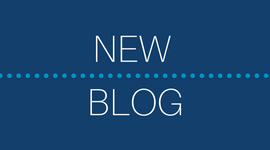Shaping the future: Our strategy for research and innovation in humanitarian response.

Shaping the future: Our strategy for research and innovation in humanitarian response.


IFRC is continuing to advocate for the inclusion of menstrual hygiene in every humanitarian response. Women and girls have menstrual hygiene needs from day 1 of any crisis – and these needs continue with every month that passes.
What have we achieved in recent months?
IFRC and the Lebanese Red Cross hosted a global Menstrual Hygiene Management (MHM) workshop in Beirut from 22nd to 24th October. There were 35 participants from 22 National Societies and IFRC, as well as 8 external partners (Colombia University, WASH United, The Case For Her, AfriPads, Oxfam, PSI, CBM and UNHCR).
It was the first time that WASH, Health and PGI (Protection, Gender and Inclusion) had all come together to share experiences and lessons in MHM, both in humanitarian and longer-term programming. IFRC’s new MHM guide and tools were launched at the workshop, along with a number of other resources (see below).
Key actions identified by participants for continuing momentum after the workshop include:
Feedback from the workshop evaluation was positive:
Between 2012 and 2016, IFRC conducted operational research in Burundi, Uganda, Somaliland and Madagascar which aimed to better understand the challenges women and girls face with menstruation in humanitarian contexts, and to generate evidence on MHM kits.
Results showed improvements in dignity, health and knowledge after the distribution of MHM kits and promotion of menstrual hygiene. Findings highlighted the importance of appropriate facilities, including safe and private spaces for maintaining hygiene and washing, changing and drying pads.
A case study has been published which outlines the operational research process, key results from each country and recommendations for MHM in emergency programming.
A second video for advocacy and training on MHM was launched at the global MHM workshop. (Watch the video here).
The video outlines the challenges that women and girls face, including lack of information, cultural taboos or restrictions, embarrassment, anxiety and a lack of private, safe facilities to manage their menstruation. Actions that are needed to effectively respond to these challenges and menstrual hygiene needs are also included.
Although the HIF project is coming to an end, IFRC is committed to keeping the momentum going for MHM and are planning to continue scaling up, disseminating and building capacity with support of a number of partners in 2019 and beyond.
The pilot version of IFRC’s MHM Guidelines and Tools will be trialled by National Societies in 3 ongoing emergency operations, as well as in regional and global trainings. Feedback from these ‘real-life’ experiences using the tools and guide will be collected and a final version completed by mid-2019.
The recently developed checklists for female-friendly latrines, bathing areas and solid waste management facilities will start to be rolled-out across emergency operations (and longer-term development programming). One aim is to use the checklists as a monitoring tool to measure progress and improvement in facilities, including how well the needs of women and girls are being met.
Pilot operational research using Cash (vouchers or grants) for menstrual hygiene is in the pipeline for 2019, to begin to collect evidence and best practices in this area. Using Cash for MHM may give women and girls more choice, can support local markets and ensure that women and girls have timely, efficient and appropriate support.
And finally, the global MHM Community of Practice (CoP) continues to be an active platform for sharing resources and experiences between many internal and external partners. The CoP is a great way to connect with other MHM practitioners all over the world. Everyone is welcome to join!
The IFRC team looks forward to continuing to work together to improve the dignity and health of women and girls in humanitarian contexts – let’s keep the momentum for MHM going!

 Please upgrade your browser
Please upgrade your browser
You are seeing this because you are using a browser that is not supported. The Elrha website is built using modern technology and standards. We recommend upgrading your browser with one of the following to properly view our website:
Windows MacPlease note that this is not an exhaustive list of browsers. We also do not intend to recommend a particular manufacturer's browser over another's; only to suggest upgrading to a browser version that is compliant with current standards to give you the best and most secure browsing experience.